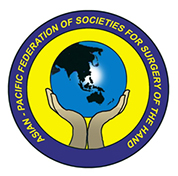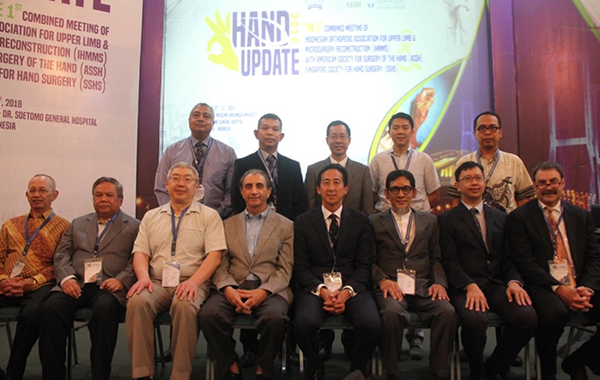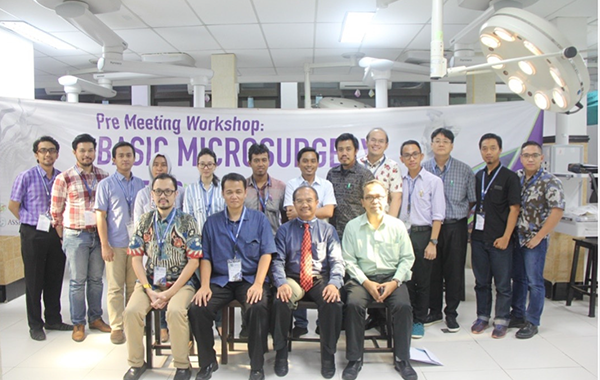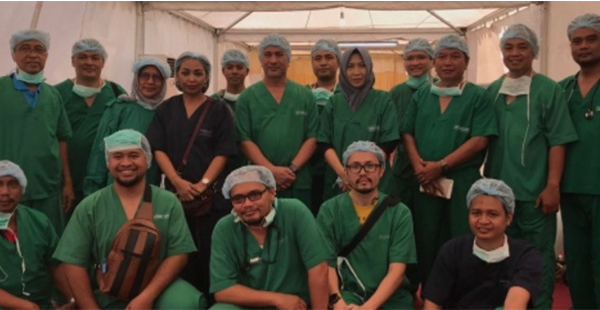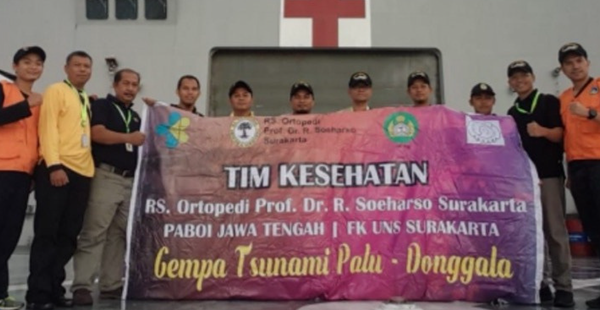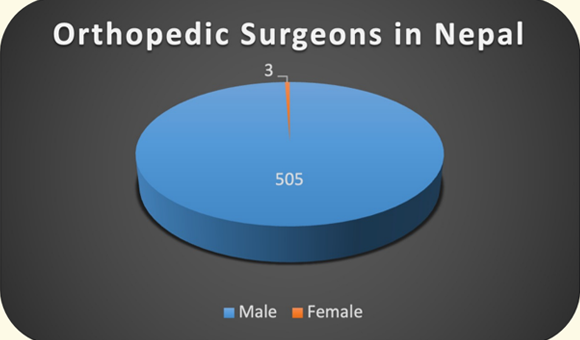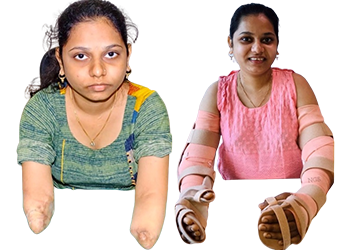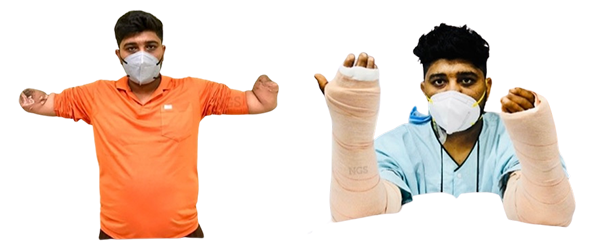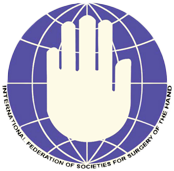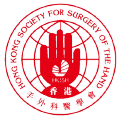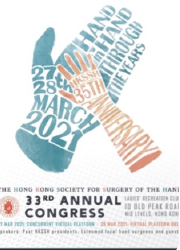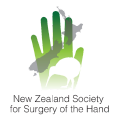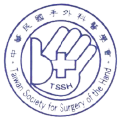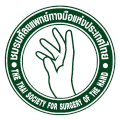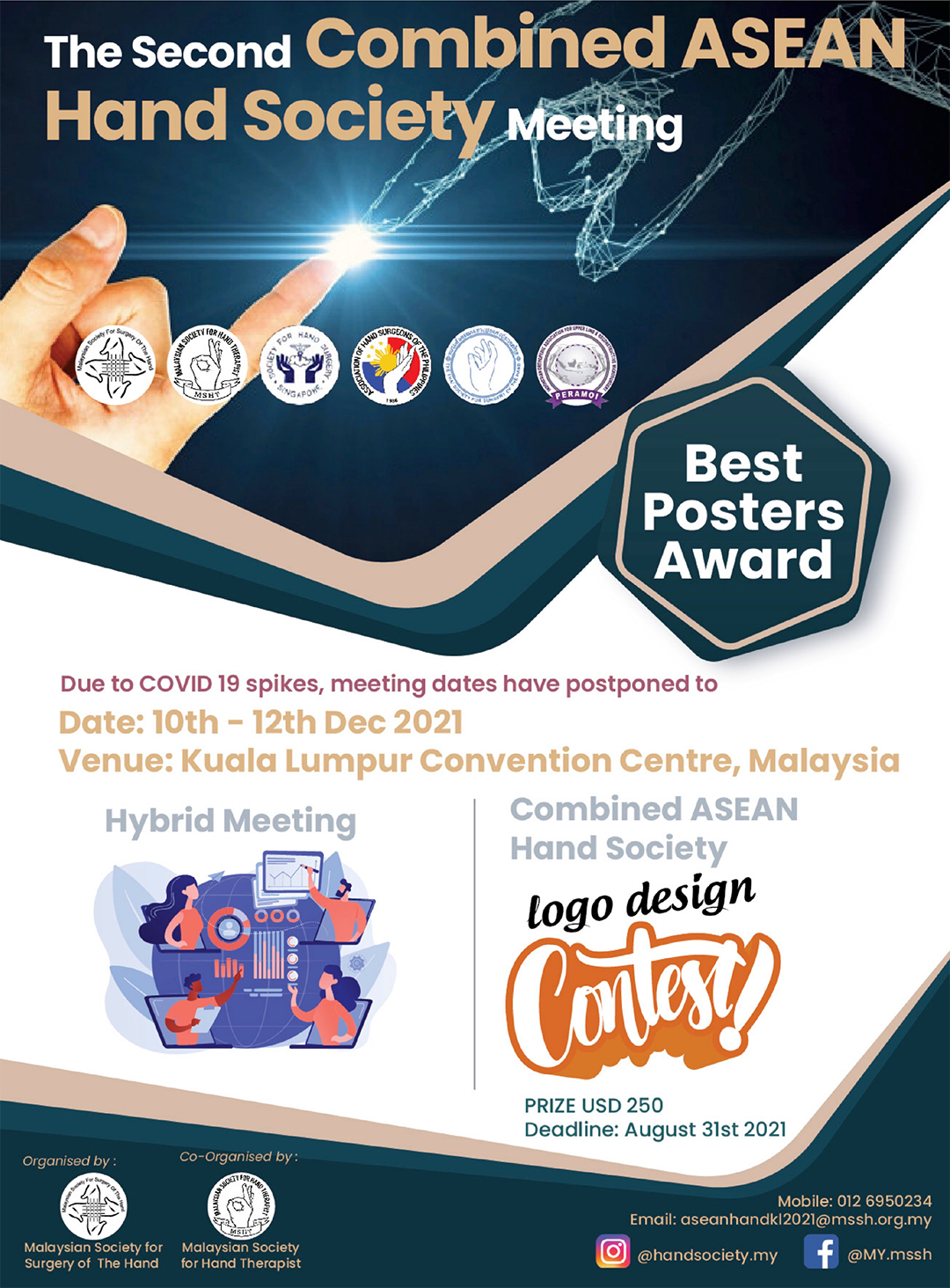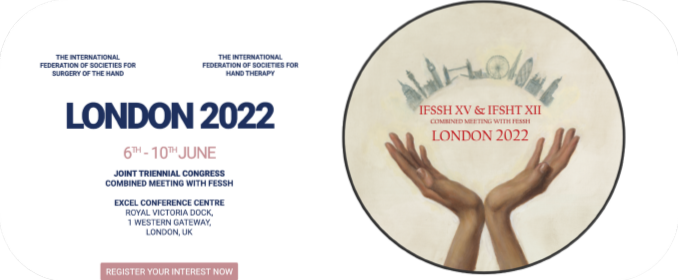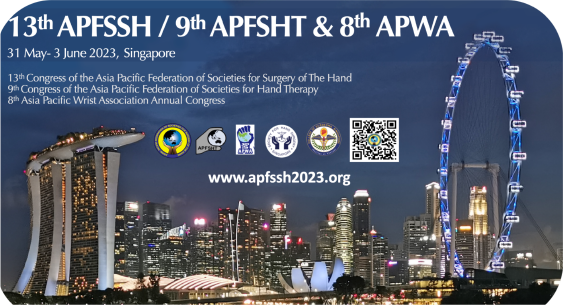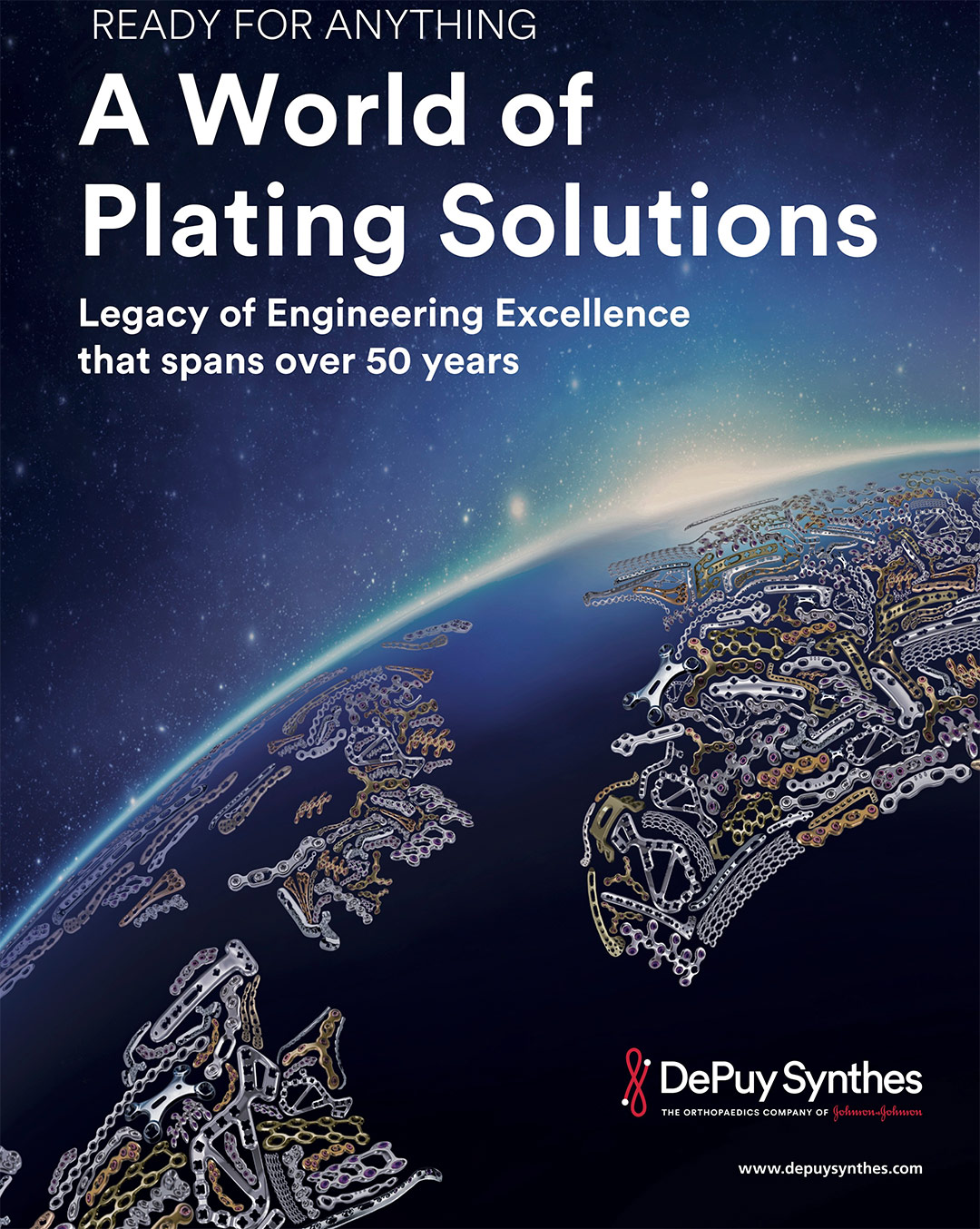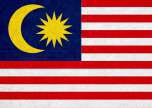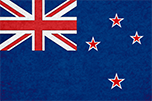- VOLUME 1, ISSUE 2, NO. 2

- DECEMBER 1, 2021
HANDS-ON
Biannual Newsletter
Asian-Pacific Federation of Societies for Surgery of the Hand

"Great things are done by a series of small things
brought together"
- Vincent Van Gogh
Welcome to the second issue of ‘Hands-On’, the official newsletter of the Asian-Pacific Federation of Societies for Surgery of the Hand (APFSSH). We are gradually getting all member nations to contribute to the newsletter. This is an opportunity to update everybody about the activities of your society and any upcoming events in your region. We also welcome any articles pertaining to Hand Surgery or Hand Surgeons.
In this issue, we have Dr Shreshta, the first woman Hand Surgeon from Nepal writing about 'Diversity in Nepal' and a special article from Dr Satbhai from India about 'Hand Transplantation'. We would also like to thank J&J, Singapore for becoming our first sponsor.
Stay Safe & Happy Reading.
Editorial Team @ APFSSH Newsletter
Jennifer, Norimasa, Pankaj, Raymar & Sandeep
IN THIS ISSUE
-
Message from President-ElectPAGE 2
-
Treasurer's ReportPAGE 6
-
Update on Our JournalPAGE 9
-
Society in the SpotlightPAGE 11
-
JHS-AP Article In-FocusPAGE 16
-
Diversity in Hand SurgeryPAGE 18
-
Hand TransplantationPAGE 20
-
In MemoriamPAGE 23
-
News from IFSSHPAGE 24
-
Report from APFSHTPAGE 26
-
Member Society StatusPAGE 27
-
Upcoming EventsPAGE 31
-
ContactsPAGE 34
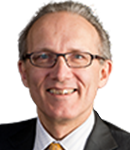 Message from President-Elect
Message from President-Elect
Anthony Berger
Adaptability - The quality of being able to adjust to new conditions
I welcome you to the second edition of Hands-On, the official newsletter of the APFSSH. When we were preparing for the Melbourne APFSSH meeting so long ago, life was very normal. There was a degree of certainty about all we do at work and at home. There was some predictability about our lives and we felt safe. We made plans with little concern that our aims would not be achievable. Life has always thrown up some challenges but we seem to have been able to manage these using our past experiences or trusting the experience of friends and colleagues who may have travelled this path before.
We had planned the Melbourne conference anticipating a few hiccups but in general we were complacent and confident of the outcome. About 2- months before the opening ceremony we started to hear of a new virus making its way around the Asian- Pacific region causing a severe respiratory illness. We reflected back on our experience with SARS and MERS and perhaps felt that the same protocols would protect us. However, about a month before the meeting it became clear that this was not to be the case. The virus, proving to be highly contagious, spread rapidly and very shortly countries were shutting borders, and we started to lose many of our speakers and registrants from the conference. We were lucky to have completed most of the meeting before deciding to close down and let everyone get home as early as possible. We managed to change the meeting to a form of hybrid conference with the great generosity and hard work of all our speakers and the conference organizers. I remember however that the word going around in March and April last year was that this will all be over by September. We have all now realized how wrong we were.
I think it would be safe to say that every aspect of our lives has been significantly impacted. Our ability to travel for work and pleasure has been curtailed. Our work has been impacted by hospital closures, bans on elective surgery and even affected how we practice our surgery.
"We will need to embrace a new normal. How do we do that? We must Adapt."
Anthony Berger
PRESIDENT ELECT APFSSH
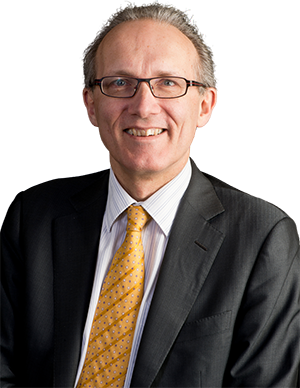
- HANDS-ON | PAGE 2

- APFSSH Newsletter
 Message from President-Elect
Message from President-Elect
Anthony Berger
Our daily lives have been changed with various levels of curfew, lock downs, masks, social distancing etc. At times I am sure some of us have felt that our very existence is at threat. I think that for me the most disturbing aspect is the uncertainty that life may never return to what we regarded as normal. The expectation is that sometime in the future we will need to embrace a new normal.How do we do that?
We must adapt.
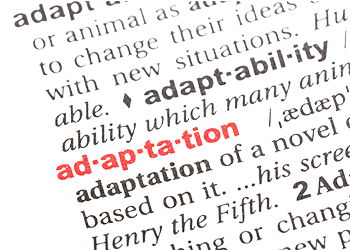
Adaptation takes on many forms. It can be passive such as we may see in the evolution of life on earth. This of course takes millennia and necessarily requires the survival of the fittest and of those with the ability to adapt and loss of those unable to change. Or, it can be an active process whereby we sense a change and actively pursue behaviours that hopefully result in a new normality minimizing any adversity. This obviously is a preferable option. In order to maintain aspects of our lives such as work, home and socialization we have had to adapt. We have had to adapt the tools around us and develop new technologies to help us. We have also had to adapt ourselves and our own attitudes and embrace these changes because they may be necessary for our survival.
Whilst there have been many freedoms we have lost, they are all manageable. We have lost the ability to travel overseas and so we now perhaps enjoy travel within our own countries. It is not an uncommon situation where, on reflection, we find that some of our best vacations have been perhaps just over the hill or round the corner from home. We have lost contact with our friends and relatives and perhaps also those whose advice and support we have drawn on during previous troubles. Social media and teleconferencing applications have been for many of us a
- HANDS-ON | PAGE 3

- APFSSH Newsletter
 Message from President-Elect
Message from President-Elect
Anthony Berger
peripheral interest but have now become essential for our socialization. Just from my personal experience with our lockdowns in Melbourne I would have had no contact with our family and grandchildren for months without using Zoom etc. Running trivia nights and online games with the family has been a great way of filling in the contact void created by COVID.
Our surgery has been impacted and we have had to alter our priorities in treating patients, to be more aware of potentially limited resources and this may not be such a bad thing in the long run. It is always good to reflect on how we do things and to look at our various efficiencies and perhaps consider more prolonged non-operative management for some conditions. Reduction of simple fractures under local anaesthetic in the rooms, needle aponeurotomy for some Dupuytren contractures etc. Perhaps a change in attitude, away from anatomical alignment of a fracture to a possibly more acceptable functional alignment. Consultations with patients can be facilitated with various tele-health programs reducing the need for patients both near and far to travel to our offices. I would however, be reluctant to schedule surgery without at least one physical examination.
As I mentioned earlier we were forced at the APFSSH meeting in Melbourne to move to a form of hybrid meeting with pre-recorded presentations and while not ideal, this was an excellent option. We have now all experienced virtual meetings with their advantages and disadvantages. I do not believe anything will replace the face to face exchange of ideas and the discussions that a live presentation generates however, online meetings are almost as good. It is difficult to run a large online meeting with many concurrent sessions as we are used to however it is much easier to have multiple invited specialists from all over the world contribute to our meetings rather than trying to find the funding for even one international speaker.The challenge now is for conference organizers to construct programs that achieve the educational goals as efficiently as possible using all available modalities to reach as many people as possible.
Many surgeons from our member societies are involved in Outreach programs bringing education to many countries in the region. Whilst nothing can replace hands-on teaching, I think many have found that the use of online resources and teleconferencing has reached far more people than could ever be done in a face-to face setting. There will always be change in our lives, some inevitable and seemingly overwhelming but with our ability to adapt we will survive
- HANDS-ON | PAGE 4

- APFSSH Newsletter
 Message from President-Elect
Message from President-Elect
Anthony Berger
this and I think become stronger and more effective in our work and lives. I am sure many of you would already have used teleconferencing facilities and I think this is going to be part of the future allowing us better communication and the ability to reach more and more people further and further away. Let us look at this pandemic as not a disaster but adapt to the changes that have been forced upon us and to evolve. I believe that some of the adaptations required from the impact of COVID have been good and will benefit our work and lives in the future.
I wish everyone health and happiness for the New Year and look forward to meeting everyone in person sometime in the near future.
Anthony Berger, President Elect, APFSSH
tony.berger@vhsa.com.au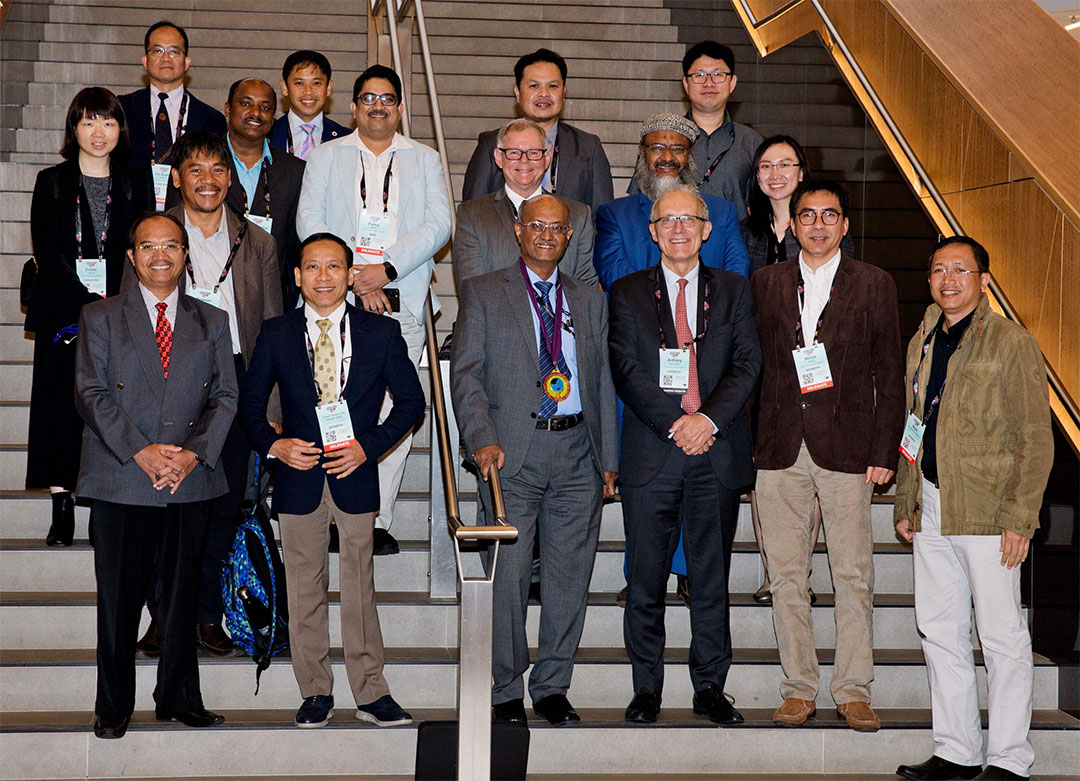
Last Physical Meeting of APFSSH National Delegates, Melbourne 2020
- HANDS-ON | PAGE 5

- APFSSH Newsletter
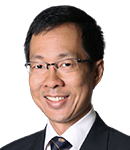 Treasurer's Report
Treasurer's Report
Alphonsus Chong
A New Chapter
I formally became treasurer of the APFSSH on 26 November 2019 when the APFSSH was registered under the Societies Act, Singapore. The duties of the treasurer of a professional society are well defined and understood. For the APFSSH, the position took on added significance because we had just formally established the society in Singapore, and I was tasked to help the APFSSH open a bank account.
"Singapore was
chosen as the
official site of the
society because of
its accessibility and
the strong and
connected financial
system"
Alphonsus Chong
TREASURER, APFSSH
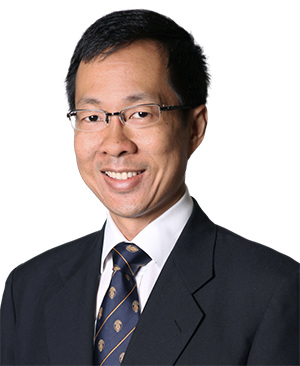
Being able to properly conduct business and financial transactions was one of the major reasons for registering our society, which had been established in 1994 and active ever since. To do this, we needed a bank account. So, opening an account was the next item on the Executive Committee's priority list after registration of the society. In fact, amongst the reasons Singapore was chosen as the official site of the society was its accessibility and a strong and connected financial system.
For banking, the exco chose DBS Bank because it is one of the big 4 local banks with a particular strength as a digital bank. In 2016, DBS was awarded the "Best Digital Bank in the World". DBS Bank is closely related to Singapore and its economic growth; being initially named "The Development Bank of Singapore Limited" by the Singapore government to support industrial financing. Today, it is a multinational public listed financial service corporation, and the largest bank in Southeast Asia.
The actual process of establishing the bank account was a feat. It took some paperwork, but also a trip to Singapore by then President Goo-Hyun Baek and Secretary-General Anthony Berger. Dr Berger arrived on the night of 19th January 2020, while Dr Baek arrived in the early hours of the 20th. Both came to the National University Hospital for a short visit and lectures, before heading to the Clementi branch of POSB/DBS Bank to formally submit
- HANDS-ON | PAGE 6

- APFSSH Newsletter
 Treasurer's Report
Treasurer's Report
Alphonsus Chong
the forms and verify the documents. The lead up to this moment was tense as we could not afford to have a slip up. Fortunately, the visit went off without a hitch. We also managed to squeeze in a pre-lunar new year lunch with our Hand Surgery fraternity. After lunch, the two office bearers left on evening flights back to home and hearth. All in a day's work for the APFSSH exco!
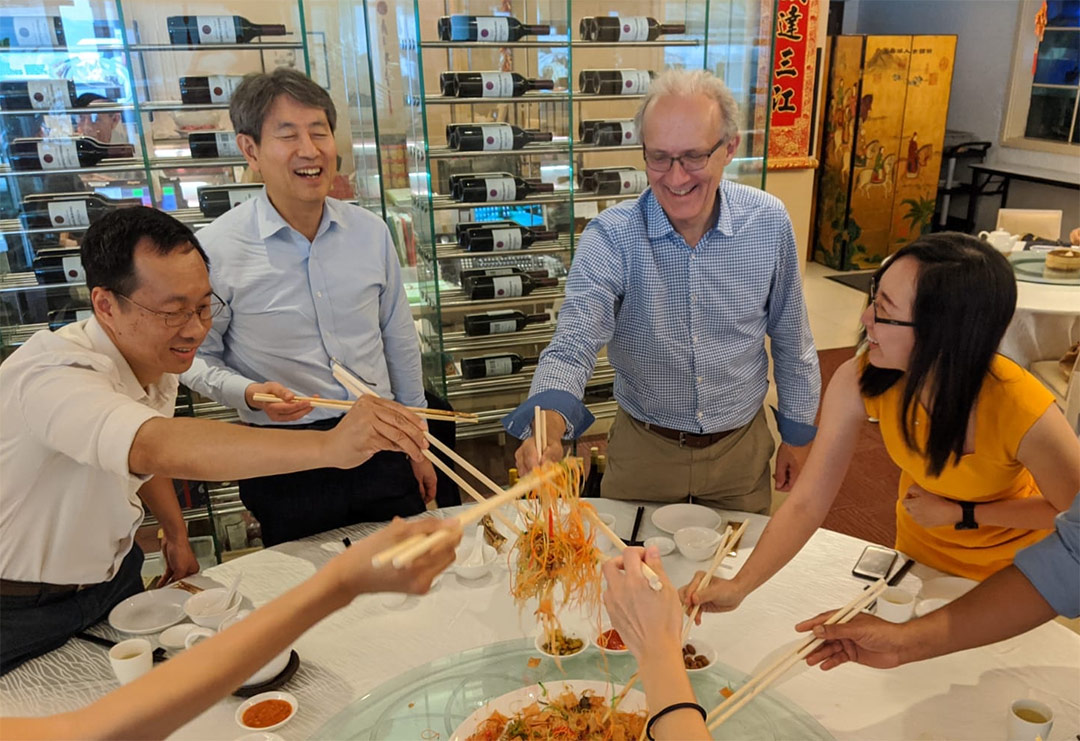
Opening of the APFSSH Bank Account
Alphonsus Chong, Goo Hyun Baek, Anthony Berger and Jacqueline Tan 'toss up good fortune' for APFSSH
We did hit a hurdle after this. Our application to open this account was initially rejected. We did not anticipate this turn of events. Fortunately, after some fact finding and appeals, we made the necessary changes to our constitution and the bank opened our account. The APFSSH was finally open for (financial) business! Digital banking has made a big difference to a geographically distributed organization like ours. Fund transfers can be arranged and approved by authorized committee members remotely,making payments for goods and services timely and simple to execute. We have since received donations from the Hong Kong and Japanese
- HANDS-ON | PAGE 7

- APFSSH Newsletter
 Treasurer's Report
Treasurer's Report
Alphonsus Chong
societies, which have kindly held funds for APFSSH for many years. Australia also donated the surplus from their 2020 meeting to APFSSH. Membership subscriptions have already started, and we are able to receive sponsorships. For the curious, our bank details are:
The Asian Pacific Federation of Societies for Surgery of the Hand
DBS Bank Ltd Singapore
12 Marina Boulevard, DBS Asia Central
Marina Bay Financial Centre Tower 3
Singapore-018982
Account Number: 201-900154-8
BIC/ SWIFT Code: DBSSSGSG
These resources will enable us to do much more to achieve the goals of our society and help with its running. As a start, we have been able to work on improving our website (www.apfssh.net), and also getting administrative support for some of our operations. For the latter, I would like to introduce Ms Bened Thong, who has come on board to help with secretariat work on a freelance basis. She is an experienced administrator who has worked with medical professional societies in Singapore. We bid a warm welcome to her. Bened can be reached at admin@apfssh.net, which aims to be the single point of contact for APFSSH related matters. She will also be reaching out to the various delegates on a regular basis for updates on their society particulars and activities. Please look out for this!
Alphonsus Chong, Treasurer, APFSSH
alfchong@gmail.com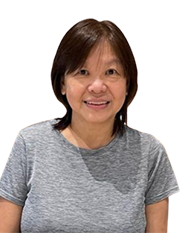
Ms Bened Thong
Secretariat, APFSSH
admin@apfssh.net
- HANDS-ON | PAGE 8

- APFSSH Newsletter
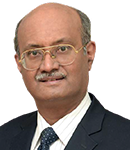 Update on Our Journal
Update on Our Journal
Raja Sabapathy
Onward.................
Life is interesting in that you get to shoulder some responsibilities that you love but did not expect would happen. I would say that becoming the Editor-in-Chief of our journal is one such opportunity. I consider it a privilege and an honour. At the onset, I should thank Goo Hyun Baek and his team for handing over to us a journal, healthy on all fronts.
Our journal was born in the year 1996 and completes its silver jubilee this year. As the new editorial team takes the journal into the next quarter of the century, it is time for us to think, reaffirm our goals and plan a strategy to achieve them. I asked myself as to how the journal should be valued by the reader. The answer came that it should be regarded not as the toughest journal for an author to get his work published in, but as a journal that Hand Surgeons would love to read, and one that would help them get better outcomes with their patients.
The editorial team owes its responsibility to many – the authors, the publishers, the reviewers, the readers and the specialty. I would place the readers first among all the stakeholders, with guiding the growth of the specialty a close second. When we pursue that purpose, I am convinced the interests of all stakeholders will be well taken care of.
We are fortunate to have a good team of editors, a fantastic editorial board from across the world, and a dedicated team of reviewers. When the journal achieves what we intend to achieve, it will be due to the selfless commitment of time of the members of the board and the team of reviewers. To complete the team, we have appointed an editorial secretary, Ms Rama Sudhakar, who will work part-time for the journal. A postgraduate in English literature, she is enrolling for a Ph.D. We will be sure to utilize her services well.
The journal will retain the same format. We do not want to change for the sake of change. But one important change we have made is to move from the Korean submission platform to Editorial Manager.
"JHS-AP should be
regarded not as the
toughest journal for
an author to get his
work published, but
as a journal that
Hand Surgeons
would love to read,
and one that would
help them get better
outcomes with their
patients."
Raja Sabapathy
EDITOR-IN-CHIEF, JHS-AP
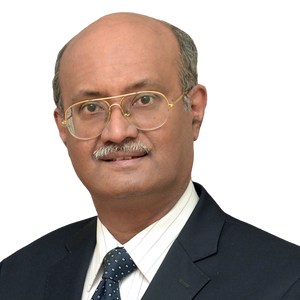
- HANDS-ON | PAGE 9

- APFSSH Newsletter
 Update on Our Journal
Update on Our Journal
Raja Sabapathy
Our Editors
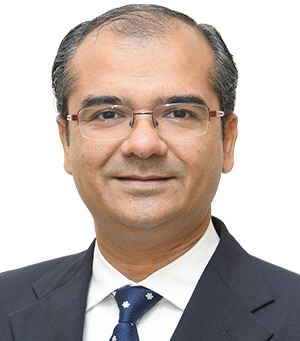 Praveen BHARDWAJ
Praveen BHARDWAJ (India)
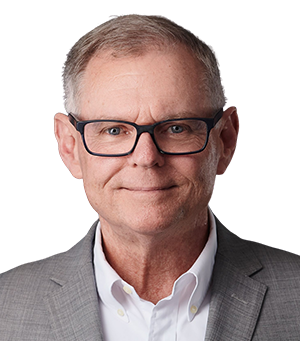 Michael BOLAND
Michael BOLAND (New Zealand)
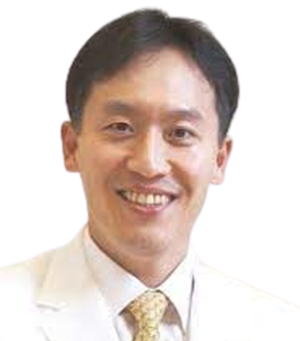 Hyun Sik GONG
Hyun Sik GONG (South Korea)
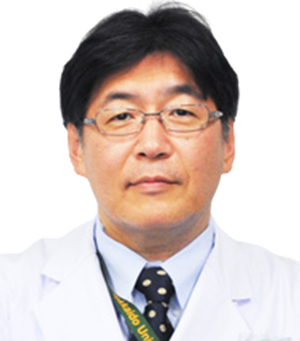 Norimasa IWASAKI
Norimasa IWASAKI (Japan)
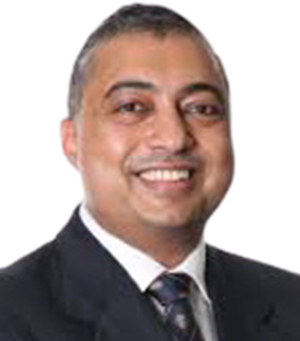 Sandeep SEBASTIN
Sandeep SEBASTIN (Singapore)
No doubt, the existing one has proved its value, but we felt the change would be good in the long term as it is the platform used by most journals. Sandeep also helped to set up new, clear guidelines for submission. Transition is not without pain. While we resubmitted most of the manuscripts to the new platform, some authors had to do it themselves. We thank all those who helped us and seek your help as we move over.
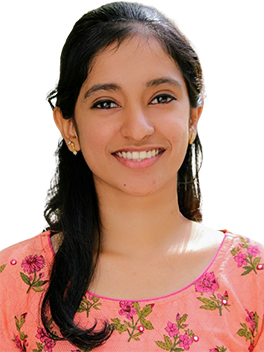
Rama SUDHAKAR
Editorial Secretary
Goo Hyun handed us a journal in a good financial position. It has to improve. ‘Financial stability' and 'Reaching to all’ are competing interests. We are working on strategies to reduce the cost of production and distribution. Ms Joy Quek who represents the World Scientific Company deserves our appreciation for considering our innumerable suggestions and accepting all that were possible. Our aim at the end of the day is that all Hand Societies in the Asian- Pacific region must enable every one of their members to have access to the journal. There is strength in numbers, and I request the national presidents and delegates to make it happen. Through the newsletters we will keep you updated of the progress that we make. Please continue giving us your feedback. Let us together make JHS-AP, the journal of choice to present your best work and a vehicle to push the speciality of Hand Surgery forward.
Raja Sabapathy, Editor-in-Chief, JHS-AP
- HANDS-ON | PAGE 10

- APFSSH Newsletter
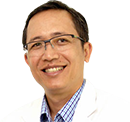 Society in the Spotlight - Indonesia
Society in the Spotlight - Indonesia
Made Bramantya Karna
Indonesian Society for Surgery of the Hand (PERAMOI)
Indonesia is a developing country with industrial cities, crowded traffic, and where some people still maintain the traditional culture of not seeing the doctor directly after an accident. Orthopaedics in Indonesia was born after the war for Independence, and Hand Surgeons were needed to fulfill the need of reconstructive surgery in acute and chronic cases. PERAMOI stands for Perhimpunan Bedah Ekstremitas Atas dan Mikro Rekonstruksi Indonesia. It is also known as the Indonesian Orthopaedic Association for Upper Limb and Reconstructive Microsurgery.
It was established on the 26th of October, 2014 at Bandung, West Java by 6 renowned Indonesian Orthopaedic Hand Surgeons: Dr. M. Rizal Chaidir, Sp.OT (K), M.Kes (MMR), FICS; Dr. Erwin Ramawan, Sp.OT (K); Dr. Heri Suroto, Sp.OT (K); Dr. Nucki Nursjamsi Hidajat, Sp.OT (K), M.Kes, FICS; Dr. Karuniawan, Sp.OT and Dr. Lukman Shebubakar, Sp.OT (K), PhD. It is a subsidiary of the Indonesian Orthopaedic Association (IOA).
The association was initially conceived by the pioneers of Indonesian Hand Surgery namely, Prof. Djoko Roeshadi, Prof. Chehab R. Hilmy, Dr. Satrio, Dr. M. Rizal Chaidir and Dr. Ahmad Djojosugito. Today, the association consists of 44 Hand Surgeons and works in collaboration with Orthopaedic training centers all over Indonesia. It is registered with the Indonesian Ministry of Law and Human Rights as an official representative of Hand Surgeons in Indonesia.
PAST AND PRESENT CHAIRPERSON
| Year | Chairperson |
|---|---|
| 2014 – 2018 | Dr. Erwin Ramawan, Sp.OT (K) |
| 2018 – 2020 | Dr. Lukman Shebubakar, Sp.OT (K) |
| 2020 – 2023 | Dr. Made Bramantya Karna, Sp.OT (K) |
PERAMOI meets the challenges in the field of reconstructive microsurgery especially in the upper limb by establishing an educational teaching forum for the exchange of ideas in trauma, congenital abnormalities, and sports injuries. It hosts a cadaveric workshop for arthroplasty, basic microsurgery, basic osteo-synthesis and flap course in conjunction with its annual meeting. Specialty cases were started such as replantation, by Prof. Djoko Roeshadi, tendon transfers by Dr. Erwin Ramawan SpOT(K) and nerve transfers, by Dr. Heri Suroto, SpOT(K). Dr. Made Bramantya Karna, Sp.OT (K) is the present head and is developing the International Journal of Hand, Upper Limb, and Reconstructive Microsurgery.
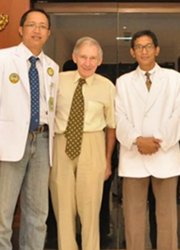
Hand Course, Bali, July 2012
(L to R): Made Bramantya Karna,
Bruce Conolly, Erwin Ranawan,
- HANDS-ON | PAGE 11

- APFSSH Newsletter
 Society in the Spotlight - Indonesia
Society in the Spotlight - Indonesia
Made Bramantya Karna
Vision and Missions Statements
- To further develop the science of Orthopaedics and Traumatology, principally on upper extremities and micro reconstruction surgery.
- To improve the well-being and health quality of the general public by aiding the government by implementing programs .
- To maintain the Hippocratic Oath and uphold the Indonesian Medical Code of Ethics in fostering solidarity between doctors and Orthopaedic surgeons
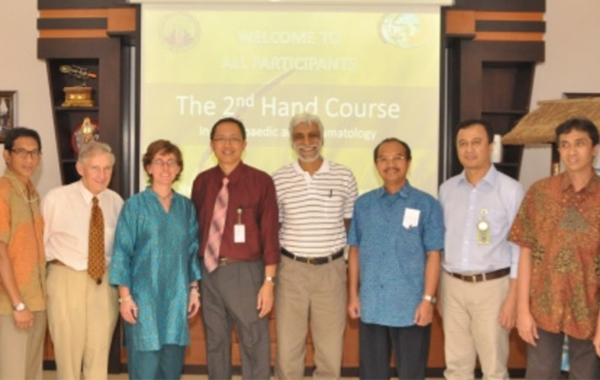
2012 APFSSH Congress – Grand Hyatt Hotel, Nusa Dua, Bali, Indonesia
(L to R): Tito Sumarwoto, Teddy Wardhana, Erwin Ramawan, Bruce Conoly, Sue Shaw, Bramantya Karna, Desmond Soares,Heri Suroto, Agus Roy Hamid, Thomas Erwin
Scientific Meetings
PERAMOI holds numerous meetings and symposiums of both a national and international caliber to improve the awareness of Hand Surgery in Indonesia. Our commitment is to provide better outcomes for Indonesian patients. Some of these meetings include the 2nd Hand Course and the APFSSH Congress at Bali (21-24 July 2012), Combined Meeting with the American and Singapore Societies for Surgery of the Hand at Surabaya (19-21 January, 2018), and PERAMOI Meeting for Shoulder and Elbow Disorders and Soft Tissue Infection at Yogyakarta (10-12 August, 2018)
- HANDS-ON | PAGE 12

- APFSSH Newsletter
 Society in the Spotlight - Indonesia
Society in the Spotlight - Indonesia
Made Bramantya Karna
Combined Meeting of ASSH, SSHS & PERAMOI 19-21 January, 2018, Airlangga University, Surabaya, Indonesia
PERAMOI Meeting 'Degenerative Disorder in Shoulder and Elbow and Management of Soft Tissue Infection in Upper Limb', 10-12 January, 2018, Yogyakarta, Indonesia
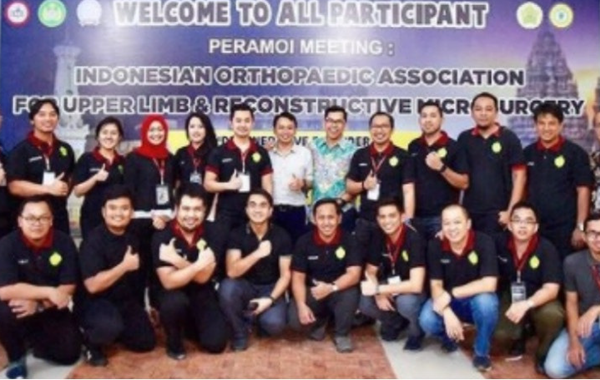
(L to R-Standing): Gean Juniwan Syahputra, Doni Agustian, Irene Anareta, Zikrina Lanodiyu, Irissansya Atikusuma, Aditya Fuad
Robby, Triangga, Yuni Artha Prabowo Putro, Luthfi Hidayat, Stefanus Hengkie Marseno, Asa Ibrahim Zainal Asikin, Widyo
Wahyu Pratomo, Arie Nugroho, Muhammad Riyad Filza
(L to R-Seated): Aditya Warman, Danajaya Putramega, Ary Putra Noor, Muhammad Afrizal Farkhan, Aditya Akbar, David Yosua
Parulian, Irsan Kesuma, Ronald Iskandar, Bagus Yudha Pratama
- HANDS-ON | PAGE 13

- APFSSH Newsletter
 Society in the Spotlight - Indonesia
Society in the Spotlight - Indonesia
Made Bramantya Karna
Fellowship Training and Certification
Basic training in Hand Surgery is included in the Orthopaedic residency program. However, general Orthopaedic surgeons who are interested in delving deeper into hand and microsurgery are invited to apply for a one-year fellowship program conducted by the Indonesian Orthopaedic Association (IOA).
The fellowship program was started in 2003, and for the first 7 years, it was under the directorship of Dr. Djoko Roeshadi, Sp.B, Sp.OT (K). The leadership baton was then passed to Dr. Erwin Ramawan, Sp.OT (K), the current director of fellowship training. PERAMOI assists the IOA in developing and conducting the hand fellowship program. In 2019, its name was changed to Hand, Upper limb, and Microsurgery Fellowship Program to include other regions of the upper extremity besides the hand. From its inception until now, the fellowship has produced 44 hand surgeons, which were certified by the College of Orthopaedics and Traumatology. PERAMOI assists the IOA in creating a curriculum for the Hand and Microsurgery fellowship, as well as providing teaching faculty. Today, the association consists of 44 Hand Surgeons that work in collaboration with Orthopaedic training centers all across Indonesia.
Humanitarian Aid
A 6.4Mw earthquake stuck the island of Lombok on 29/7/2018 at a depth of 1.4km. Widespread damage was reported with 20 people killed and hundreds injured. Another 7.4Mw earthquake and Tsunami occurred in Palu on 28/9/12018 causing severe destruction in Palu, Donggala and Sigi in the central Sulawesi province. More than a 1000 people died and 10,000+ were injured. PERAMOI and its parent organization, IOA took immediate action to coordinate medical relief efforts on Lombok and Palu. Some of the photos below show the field hospital at Lombok and the Indonesian Naval hospital ship at Palu.
- HANDS-ON | PAGE 14

- APFSSH Newsletter
 Society in the Spotlight - Indonesia
Society in the Spotlight - Indonesia
Made Bramantya Karna
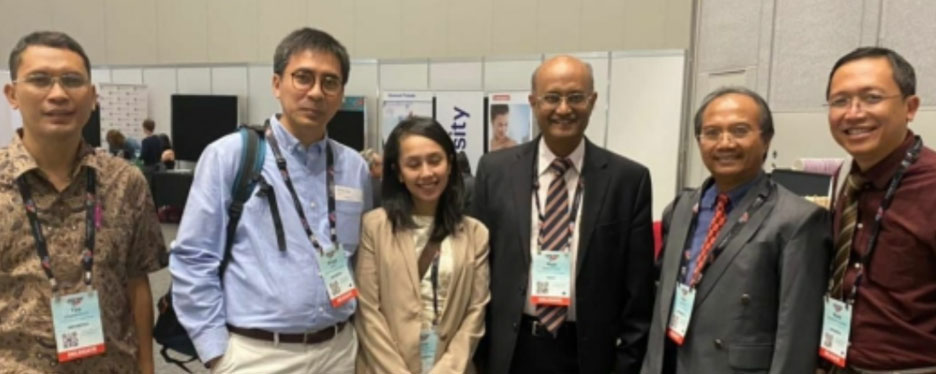
Team PERAMOI @ APFSSH 2020, Melbourne
(L to R): Tito Sumarwoto, Widya Arsa, Dina Aprilya, Raja Sabapathy, Heri Suroto, Made Bramantya Karna
Activities during the Pandemic
During this pandemic, PERAMOI in collaboration with Indonesia Orthopaedic association (IOA) continues to carry out its scientific activities online by inviting other related medical fields such as physical medicine and rehabilitation, radiology, neurosurgery, plastic surgery, thoracic and cardiovascular surgery in order to provide an up-to-date knowledge and refresher course for both the Orthopaedic society and the public. Some of the speakers include Christopher Mathoulin (France), Dr. Sudhir Warrier (India), Dr Raja Sabapathy (India), Steven Samijo (Netherlands), Kanchai Malungpaishrope (Thailand), Prof. Jeong Tae Kim (Korea), and Prof. Kazuteru Doi (Japan)
Made Bramantya Karna, President, PERAMOI
PERAMOI.org@gmail.comExecutive Body PERAMOI
| President: | Made Bramantya Karna |
| Vice-President: | Widya Arsa |
| Hon. Secretary: | Thomas Erwin Christian Junus Huwae |
| Treasurer: | Tito Sumarwoto |
| Editor: | Pramono Ari Wibowo |
- HANDS-ON | PAGE 15

- APFSSH Newsletter
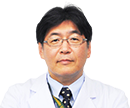 JHS-AP Article In-Focus
JHS-AP Article In-Focus
Norimasa Iwasaki
Histopathology Findings of the Lunate in Stage III Kienbӧck Disease
Xiong G, Liu B, Ding Y. J Hand Surg Asian Pac Vol. 2021 Sep;26(3):333-338.
'Used with permission from World Scientific Publishing Co. (Singapore)'
Although Kienbӧck disease is a well-known wrist disorder, its etiology and natural history remain debatable. Therefore, a variety of names based on the possible etiology have been used for this disorder. These include lunatomalacia, aseptic necrosis, traumatic osteoporosis, osteochondritis, osteitis, etc.
Currently, Kienbӧck disease is referred to as aseptic necrosis of the lunate. The authors performed a histological examination of the whole lunate to explore the dynamic process of lunate collapse in Kienbӧck disease. Five lunates from patients with stage III Kienbӧck disease and one cadaveric lunate not involved in this disorder were sampled for further examination. Each lunate was sectioned and underwent H&E staining. The thickness of trabecular bone and the area of necrotic tissue were quantitatively evaluated using an image analyzing software. In addition, the number of vessels was manually counted.
Histological examination showed that the trabeculae fracture and necrosis were located in the central part with massive fibrous granular tissue proliferation in the lunates with Kienbӧck disease. The trabeculae of the diseased lunates were significantly thicker than the normal lunates.The necrosis was localized around the fracture sites instead of the whole lunate. The mean necrosis area only accounts for 16.3% ± 8.9% of the whole section. The vessels in stage III Kienbӧck lunates are quite abundant.

Lunate Micro-Computed Tomography (Sagittal Images)
(L to R): A. Normal Lunate with arrows showing mechanically weak points; B. Kienböck lunate with arrows show extensive fractures in the cental lunate; C. Kienböck lunate with left and right arrows show the primary and secondary fractures.
The present histological examination showed that the necrosis was focal and around the fracture sites with fibrous granulation tissue and vessels around it. Based on the obtained results, the authors showed that the progressive process of Kienbӧck disease is that of lunate non-union advanced collapse rather than avascular necrosis.
- HANDS-ON | PAGE 16

- APFSSH Newsletter
 JHS-AP Article
In-Focus
JHS-AP Article
In-Focus
Norimasa Iwasaki
'Used with permission from World Scientific Publishing Co. (Singapore)'
Radial osteotomy for Kienbӧck disease is an indirect revascularization technique that relies on reducing excessive force on the lunate. This procedure has been recommended for patients with Lichtman stage II to III and favourable outcomes have been demonstrated. However, the authors raise here the question of whether radial osteotomy is effective for older patients.
The hypothesis of this study is that there would be no differences in the clinical outcomes following radial osteotomy between younger and older patients. To test this hypothesis, the authors aimed to retrospectively compare the clinical and radiological outcomes of this procedure using volar locking plate (VLP) following radial osteotomy between younger and older patients with Kienbӧck disease stage II to IIIB. In this study, 21 patients treated with radial osteotomy were divided into two groups to compare the postoperative outcomes between younger (younger than 40 years old) and older patients. The type of radial osteotomy was selected depending on the ulnar variance, including radial shortening osteotomy, closing wedge osteotomy, or a combination of both.
Both treatment groups demonstrated significant postoperative improvement in the range of motion of the wrist, grip strength, numeric rating scale (NRS) for pain, and Hand20 score. No significant differences except for NRS scores in clinical assessments were found between the two groups. On the other hand, radiological improvement, including CHR, Stahl index, and union of the fractured lunate, was more common in the younger group than in the older one.
The results obtained here indicate that older patients also achieve significant clinical improvement following radial osteotomy. Therefore, the authors emphasize that radial osteotomy is a safe and reliable option even in older patients with stage II to IIIB Kienbӧck disease.
Norimasa Iwasaki, Editor, JHS-AP
- HANDS-ON | PAGE 17

- APFSSH Newsletter
 Diversity and Inclusion in Hand Surgery in Nepal
Diversity and Inclusion in Hand Surgery in Nepal
Shilu Shreshta
Nepal has witnessed age-long disparities based on gender, caste, ethnicity, and geographical location. The historical social fabric of Nepal has defined roles for men and women and their relationship. Women’s role have traditionally been subordinate to men. As the social arrangement changes over time, women face discrimination, unequal power relations, and gender-based inequalities. This limits women's participation in many areas of society. The situation is gradually improving as seen by increasing participation of women in politics, medicine, civil services, and in other diverse areas. More female students are studying medicine in the country as more institutions are emerging in cities and towns, making it easier for them to enroll. There are a fair number of women doctors, but the number of women specialists especially in Orthopaedic and Plastic Surgery, which is the gateway to Hand Surgery is incredibly low. The number of women at the assistant and sub-managerial level has improved, but it is still very low at the managerial and decision-making levels.
There are only 3 women Orthopaedic surgeons among Nepal's 508 registered Orthopaedic surgeons. The first registration was as recent as 2012. And out of three, only one is registered as a Hand Surgeon. There are still spots specified by the government for women in Orthopaedic Surgery that have not been filled. The Plastic Surgery pool is much smaller compared to Orthopaedic Surgery in Nepal. There are around 30 registered Plastic Surgeons but none of them are women.
different perspectives and values that bring diversity to the field.
Some of the major challenges, which I feel are hindering women participation, in hand surgery are the dearth of women in leadership positions, scarcity of women role models, lack of
- HANDS-ON | PAGE 18

- APFSSH Newsletter
 Diversity and Inclusion in Hand Surgery in Nepal
Diversity and Inclusion in Hand Surgery in Nepal
Shilu Shreshta
mentorship and exposure, and poor planning for inclusion. Women Orthopaedic or Plastic surgeons naturally do not occupy as many leadership roles as men due to the assumption that women are poor decision makers and often considered secondary citizens in Nepal. This paucity of representation in decisionmaking positions, in my opinion is the biggest barrier in bringing more women to Orthopaedic and Plastic surgery.
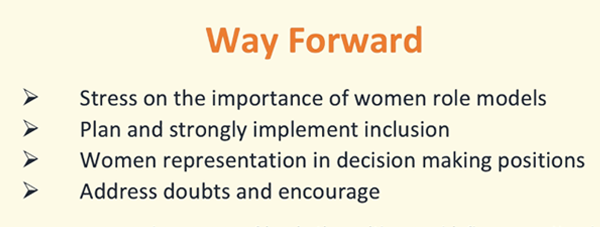
Women surgeons may be a source of inspiration, with a good influence on Nepal as a whole. My hope is that this discourse and a collective effort to bring a transformative change in the field will help shift public perception and increase the number of competent women in Hand Surgery. We will be able to better balance requests for women surgeons, as well as gender sensitivities in the administration. It is critical to dispel the stigma that still exists today, which casts doubt on a woman's physical ability to execute the tasks required in the field of surgery.
Recent amendments to the constitution of Nepal have resulted in a huge improvement in the inclusion of women. A separate article in favour of women's rights and empowerment has been drafted. The government of Nepal is also working towards gender equality in all development policies and programs. The challenge is to formulate specific strategies and implement those. This is the time to give special preference to women, make a collective effort and specify positions for women as leaders. If we do this now we might be able to see a transformation in the years to come. If the other half of the population of Nepal is empowered, we will be able to improve HER stature as a whole.
Shilu Shreshta, Hand Surgeon, Nepal
- HANDS-ON | PAGE 19

- APFSSH Newsletter
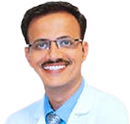 Hand Transplantation – A second chance at life!
Hand Transplantation – A second chance at life!
Nilesh Satbhai
The more I think of hands, the more I fall in love with them. The intricate anatomy and biomechanics of the hand never fails to mesmerize me. After the face, it is the hands that are the most exposed and visible part of the human body. The sensory and motor homunculi of the brain prove this beyond a doubt. We all know how debilitating hand injuries can be. And the disability after loss of one or both hands can only be imagined. It is this concern, that pushes us to give our best, up-skill ourselves, innovate and deliver the best clinical outcomes.
The plight of a hand amputee can only be imagined. Prosthetics have made significant progress, but are still a poor substitute for a sensate and functional hand. Based on the dominance, unilateral amputees are reasonably well adjusted. But bilateral amputees experience serious limitations, which makes them eligible for a transplant, after a detailed assessment, counselling and preparation on all fronts.
Hand transplantation is a revolutionary concept. It is a life enhancing surgery. It is the only procedure that can provide a functional, cosmetic and natural looking hand to an amputee. Lifelong immunosuppression is one of the major concerns and limiting factors in the decision making for hand transplant. The large skin and marrow components in the hand makes it highly immunogenic and hence it warrants stronger immunosuppression as compared to solid organs.
- HANDS-ON | PAGE 20

- APFSSH Newsletter
 Hand Transplantation – A second chance at life!
Hand Transplantation – A second chance at life!
Nilesh Satbhai
added every year. Majority of them are young and in the productive age group. The decision to choose a candidate for hand transplantation depends hugely on their mental status, maturity to understand the magnitude of the entire process and the will to follow the lifestyle changes that are essential for any immunosuppressed person. I believe these factors are most important, much more than the financial considerations. Transplants in India are not covered under insurance. Hence preparing themselves for the major surgery, long hospital stay and lifelong maintenance does take some time. The most important asset for most patients is strong family support, which helps them to tide over the major surgery and rehabilitation phase. I feel the strong family ties also help these patients to fight depression in a better way and stay away from drug or substance abuse.
Since August 2020, our team at Global Hospital, Mumbai has performed three bilateral hand transplants. All the three patients were proximal forearm amputees. They have had a reasonably smooth recovery following surgery and have not encountered any major rejection episodes till date. The ongoing Covid-19 pandemic made it more challenging to perform these transplants besides the technical and logistical concerns. The organs were flown in from neighbouring states, which made time management very crucial. The first recipient has now completed 15 months posttransplant and has recovered good extrinsic function of her hands. The intrinsic function also has recovered partially and she is undergoing therapy for the same. After having lived a dependent life for 7 years (train accident in 2014), she is now a changed person altogether. She is independent and also employed at our hospital, where she works as a patient care coordinator. The other 2 patients are now waiting for their nerve recovery to begin, but are excited to see the progress of the first patient.
- HANDS-ON | PAGE 21

- APFSSH Newsletter
 Hand Transplantation – A second chance at life!
Hand Transplantation – A second chance at life!
Nilesh Satbhai
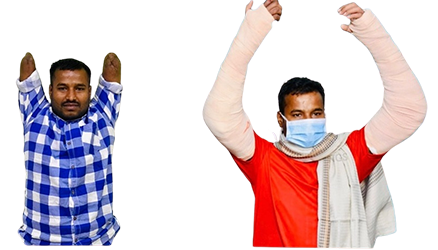
India has been the cradle of ancient civilization. The Hindu mythology is full of interesting characters and stories which depict the concept of the ‘chimera’. Lord Ganesha who is worshipped across India is a famous example. He has an elephant head on a human body. Similar descriptions of such unique creatures in the ancient Egyptian or Greek cultures has always fascinated the human mind. The ability to transplant an organ without subjecting the recipient to lifelong immunosuppression is the ultimate dream. The quest for chimerism is still on, and its success, if at all, will truly transform the world of organ transplants.
I believe, hand transplantation in an appropriately selected candidate, will continue to remain their best option to have a second chance to live an independent life with dignity and self-respect. Because, quality of life is often more important than life itself.
Nilesh Satbhai, Global Hospital, Mumbai, India
satbhainilesh@gmail.com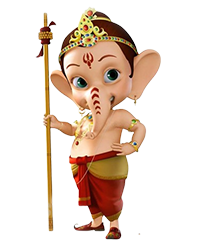
- HANDS-ON | PAGE 22

- APFSSH Newsletter
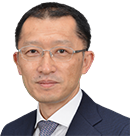 Professor Yasuo Yamauchi (1931 - 2021)
Professor Yasuo Yamauchi (1931 - 2021)
Muneaki Ishijima
A Tribute
Professor Yamauchi, one of the doyens of Japanese Hand Surgery passed away peacefully on June 26, 2021. He was born in Hamamatsu, Shizuoka Prefecture in 1931 and graduated from the School of Medicine at the University of Tokyo in 1956. Subsequently, he did his internship at the US Naval Hospital at Yokosuka (1957) and his surgical residency at the University of Michigan
'For rapid
advancement of a
science, there
should exist
creative pioneers
and a need in
society.’
Yasuo Yamauchi
Editorial, JHS-AP, Dec 2001
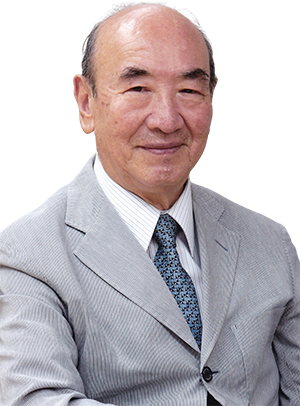
Hospital, Ann Arbor (1957-59). He returned to the University of Tokyo in 1959 to complete his postgraduate training in Orthopaedics and thereafter joined as a member of the faculty.
Prof Yamauchi returned to Michigan in 1967 as a research fellow with Dr Alfred Swanson at the Blodgett Memorial Hospital at Grand Rapids and worked with him on the development of silicone implants for small joint arthroplasty. On his return to Japan in 1969, he joined Juntendo University School of Medicine and pioneered the use of silicone implant arthroplasty. He became Professor at the Department of Orthopaedics in 1982, served as Director of the Juntendo University Hospital from 1989 till 1994 and became Emeritus Professor in 1997.
He held multiple positions including President of the Japanese Society for Surgery of the Hand (1982) and the Japanese Orthopaedic Association (1993-94). He is one of two Japanese Hand Surgeons that have served as President of the International Federation of Societies for Surgery of the Hand (1998-2001). He introduced board certification for Orthopaedics in Japan and will be remembered for his tremendous contribution to development and progress of Hand Surgery and Orthopaedic Surgery in Japan.
Muneaki Ishijima, Professor, Juntendo University
ishijima@juntendo.ac.jp- HANDS-ON | PAGE 23

- APFSSH Newsletter
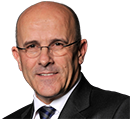 News from IFSSH
News from IFSSH
Marc Garcia Elias
International Federation of Societies for Surgery of the Hand
'Those who cannot remember the past are condemned to repeat it.' This quote, from a 1905 book entitled "The Life of Reason" by the philosopher George Santayana, could be applied pertinently to all “new ideas” being reported as novelties, when they actually repeat old concepts that failed to be publicized widely enough. Let’s take the following as an example of what I would like to emphasize today.
Tendon reconstruction of wrist ligaments is not new. In the 70s. Palmer et al (1), published an article where the results of 30 scapholunate (SL) ligament reconstructions were discussed in-depth. All cases had been performed by expert surgeons from the Mayo Clinic. With an average follow-up of 3.8 years, 40% of those reconstructions had moderate or poor outcomes. The overall impression was that such tendon reconstructions were "less than ideal” because: 1) the transposed tendon often ruptured or attenuated during immobilization, 2) the drilling holes had produced a weakened area in the bone that became the site of fractures, and 3) the intraosseous blood supply to the bones had been disrupted.
Julio Taleisnik (2) in 1985, also tried a similar technique involving tunneling different carpal bones to reconstruct both volar and dorsal SL ligaments with a free tendon graft. According to the author, the technique was "... difficult, unreliable in terms of the objective correction obtained, and the degree of patient satisfaction was disappointing due to late complications after prolonged follow-up." What a humility lesson they gave us! Their honesty in reporting this data was unprecedented.
Why did we not get the message? Why did we have to learn it again the hard way? Obviously, we thought that we could do it better. We believed that, by just bringing in new ideas (minimally invasive approaches, arthroscopy guided, internal frames, etc), we would find the key to success.Unfortunately, as you probably have suspected, the answer remains elusive, because this is a multifactorial issue.
Albert Einstein is quoted to have said “Insanity is doing the same thing over and over again and expecting different results”. Let’s not be insane and learn the lesson. When a problem looks unsolvable, go back to the basic science lab. You’ll probably be amazed at how many answers they have to questions that only you may raise.
(1) J Hand Surg 3(6):507-532,1978.
(2) The wrist. Churchill Livingstone, 1985.
- HANDS-ON | PAGE 24

- APFSSH Newsletter
 News from IFSSH
News from IFSSH
Marc Garcia Elias
Fortunately in the IFSSH we do remember many aspects of our past activities with fond memories and this includes the wonderful congresses run in the Asian-Pacific region: Tokyo 1986, Sydney 2007, Seoul 2010 and Delhi 2013. We want to repeat these great get-togethers and our regional rotation system allows us to do this in 2028. The Asian-Pacific region has treated us to congresses of science and culture mixed with hospitality and friendship that we will not forget.
We invite the IFSSH member societies from the Asian-Pacific region (https://ifssh.info/regional_allocation.php) to submit a proposal to host this congress. The Congress Guidelines have recently been updated and the revised information is now available on the IFSSH website: https://ifssh.info/guidelines.php. Any AsianPacific member society that is interested in hosting the 2028 IFSSH Congress should inform the IFSSH Executive of their intentions and ensure that the full bid is forwarded, as detailed in the instructions above, by March 6th 2022, for consideration at the London meeting (June 6-10, 2022).
We also continue to honour those who forged international paths of hand surgery through the “IFSSH Pioneer of Hand Surgery” ceremony. The next honours will be awarded at the Opening Ceremony of the London 2022 Congress. Please take the time to read Raja Sabapathy’s recent IFSSH Newsletter (https://ifssh.info/Secretary_newsletter.php) for directions about these nominations.
Finally, to expand our horizons and ensure we move forward with vigour, the IFSSH Executive and Nominating Committee will be reconfigured with many new positions at the next scheduled elections which will be held at the London 2022 Congress - https://ifssh.info/2022-elections.php. These elections will expand the IFSSH leadership, with elected positions for the Secretary-General, a Communications Director (replacing the Historian role), 5 Executive Committee Members-at-Large (increased from one) and 2 additional Nominating Committee Members-at-Large. The ExCo Member-at-Large positions, for the first time, are being based on regional representation and we know the Asian-Pacific region delegate elected to the role will bring the experience and enthusiasm to the position that your region is well-known for.
Marc Garcia Elias, President, IFSSH
garciaelias@institut-kaplan.com- HANDS-ON | PAGE 25

- APFSSH Newsletter
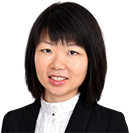 Member Society Status - Hong Kong
Member Society Status - Hong Kong
Esther Chow
Hong Kong Society for Surgery of the Hand (HKSSH)
The COVID-19 pandemic has affected every aspect of life but this has not stopped us from continuing our mission in promoting Hand Surgery. We have been able to organize several online webinars during this pandemic, both local and international. These include the following:
- Replantation Symposium, 31 July, 2021
- Certificate Course (Module 4): Arthritis of Hand and Upper Extremity, 23 October, 2021
33rd HKSSH Annual Congress and 35th Anniversary of HKSSH
(27–28 March, 2021): This year HKSSH celebrated its 35th anniversary. The theme of our Congress was 'Hand in Hand through the Years'. We invited our past presidents to share their experiences in different aspects of Hand Surgery. This was a hybrid meeting.
Esther Chow, Honorary Secretary, HKSSH

The Hand Print Ceremony of Our Past Presidents to Celebrate the 35th Anniversary of HKSSH
(L to R): PC Leung, SP Chow, YC So, LK Hung, YY Chow, PC Ho, KY Choi, PT Chan, HK Wong, WL Tse, Shelley Chow, KK Tsang, C Li-Tsang, J Wong, M Fok, KK Tam
Executive Body HKSSH
| President: | TSE Wing Lim |
| Vice-President: | FOK Woon Man Margaret |
| President-Elect: | KOO Siu Cheong Jeffrey Justin |
| Honorary Secretary: | CHOW Esther Ching San |
| Honorary Treasurer: | YAU Leung Kai Edmund |
| Members: | HO Wing Hang, LAU Yan Kit, YIP Ka Yan Emily |
- HANDS-ON | PAGE 27

- APFSSH Newsletter
 Member Society Status - New Zealand
Member Society Status - New Zealand
Michael Boland
New Zealand Society for Surgery of the Hand (NZSSH)
Our AGM was subsequently shifted to a zoom conference later in the year. In general, though, our Governments aggressive initial Covid response meant we have been able to attend in person events, culminating in a very successful event held in July this year, in Queenstown. We are very indebted to the International Faculty who have showed great support for our meetings. We are fortunate also that New Zealand is a great country to visit with very special scenery. We hope that soon we will be able to travel freely in the region so we as a Society can support meetings and proceedings of the Federation.
Our society has grown in the past two decades. The New Zealand Society for Surgery of the Hand is an inclusive Society and membership is open to Orthopaedic and Plastic Surgeons with an interest in Hand Surgery. The original Hand Club and early Society members tended to be Orthopaedic Surgeons and there has been a recent push to include more Plastic surgeons. This push essentially doubled our membership overnight and now we have over 90 members.
Despite covid the NZSSH remains in good heart, our meetings are well attended, and our structure is formalised. We have a number of reviewers for the Asian Pacific Journal, and invite all members from the APFSSH to visit us very soon.
Michael Boland, Member-at-Large APFSSH Ex-Co, APFSSH Delegate New Zealand
Executive Body NZSSH
| President: | Timothy Tasman Jones |
| President-Elect: | Christopher Louden |
| Imm. Past President: | Bruce Peat |
| Secretary: | Sandeep Patel |
| Secretary-Elect: | Robert Rowan |
| Imm. Past Secretary: | Wolfgang Heiss Dunlop |
- HANDS-ON | PAGE 28

- APFSSH Newsletter
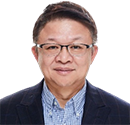 Member Society Status - Taiwan
Member Society Status - Taiwan
Hao-Chih Tai
Taiwan Society for Surgery of the Hand (TSSH)
operations in the northern hospitals were suspended, and the operations of the central and southern hospitals were also affected to varying degrees. So far, the hospital's routine operations have almost returned to normal. Since the outbreak of the COVID-19 pandemic in January 2020, our members have been working hard to implement the epidemic prevention measures. We also have continued to participate in various academic activities, including the education courses held every two months, and promote the improvement of medical care.
This 2021 annual meeting of TSSH was a combination of online virtual video conferences and face-to-face physical meetings. The agenda presents trends and new developments in the field of hand surgery, including exploration in new areas, such as the application of ultrasound and cell therapy, the treatment and research of nerve injuries, and new topics in the treatment of hand deformities and hand injuries. Free papers presentations by members have given us a better understanding of the medical results of Hand Surgery in various hospitals.
I look forward to the members' participation to feed this rich academic feast, as a driving force for continuous improvement. And I wish the members to remain vigorous and lively, to take steps to welcome the next broad field.
Hao-Chih Tai, President, TSSH
Executive Body TSSH
| President: | Hao-Chih Tai |
| Secretary-General: | Jung-Hsien Hsieh |
| Deputy Secretary-General: | Po-Cheng Huang Po-Ting Wu Hung-Wei Yang |
| Secretary: | Mi-Chi Zhan |
- HANDS-ON | PAGE 29

- APFSSH Newsletter
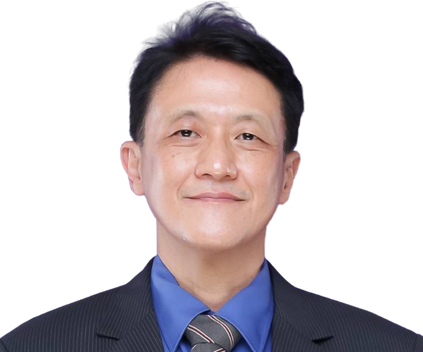 Member Society Status - Thailand
Member Society Status - Thailand
Chinnakart Boonyasirikool
Thai Society for Surgery of the Hand (TSSH)
Our Annual Hand Meeting, usually held in the third week of March, was turned into a webinar. Lerdsin Hospital, this year’s excellent host, divided the sessions into twohour topics per week. The outcome was very successful as we received a large amount of interest from the floor, and record participation.
Another annual meeting of our Hand Society is the Regional Hand Meeting held in August. It was to be held at Phuket, but was postponed to August next year due to the new surge in COVID-19 infections as well as certain government regulations. This year, we set a goal to make sure our members will meet more in person. Hopefully, we will improve upon all the experiences from this year’s webinar, and conduct an even better seminar in the near future. The next Annual Hand Meeting will be hosted by Siriraj Hospital at the end of March 2022. The host is currently working hard to ensure a successful and seamless meeting for all of us with the intention to resume onsite events. Phuket’s team is marking their calendars, counting days, and looking forward to hosting the Regional Hand Meeting tentatively in August 2022.
We are also looking forward to welcome friends, neighbours, and participants from abroad to the 44th Annual Meeting of the Royal College of the Orthopaedic Surgeons of Thailand (RCOST) to be held in October 2022. We truly believe the meeting will resume its international form in the same way it is held every year. Best regards to everyone until we meet again.
Sunyarn Niempoog, President, TSSH
Executive Body TSSH
| President: | Sunyarn Niempoog |
| Vice-President: | Pravit Kitidumrongsook |
| Secretary: | Chinnakart Boonyasirikool and Worapon Jareonporn |
| treasurer: | Torpol Wattana |
- HANDS-ON | PAGE 30

- APFSSH Newsletter
Contacts
Office Bearers
| President: | Raja Sabapathy rajahand@gmail.com |
| President-Elect: | Anthony Berger tony.berger@vhsa.com.au |
| Secretary General: | Fuminori Kanaya fkanaya@med.u-ryukyu.ac.jp |
| Treasurer: | Alphonsus Chong alfchong@gmail.com |
| Immediate Past President: | Goo Hyun Baek ghbaek@snu.ac.krer |
| Members at-Large: |
Clara Wong clara.wongclara@gmail.com
Michael Boland michael@handsurgeon.co.nz Norimasa Iwasaki niwasaki@med.hokudai.ac.jp Ruban Sivanoli rubansivanoli@gmail.com Sandeep Sebastin sandeepsebastin@gmail.com |
Newsletter Editorial Team
| Jennifer Green | Australia jennifer.green1312@gmail.com |
| Norimasa Iwasaki | Japan niwasaki@med.hokudai.ac.jp |
| Pankaj Ahire | India drahire@hotmail.com |
| Raymar Sibonga | Philippines raymar_sibonga@yahoo.com |
| Sandeep Sebastin | Singapore sandeepsebastin@gmail.com |
Contact Us
APFSSH SECRETARIAT
Alphonsus Chong
Department of Hand &
Reconstructive Microsurgery
National University Hospital
NUHS Tower Block, Level 11
1E Kent Ridge Road
Singapore 119228
Tel: +65 6772 5549
Fax: +65 6772 2358
alfchong@gmail.com
NEWSLETTER
Sandeep Sebastin
Orthopaedic & Hand Surgery
Partners
Gleneagles Hospital
#03-37 Annexe Block
6A Napier Road
Singapore 258500
Tel: +65 6970 7748
Fax: +65 6970 7758
sandeepsebastin@gmail.com

- HANDS-ON | PAGE 34

- APFSSH Newsletter
 +91 98422 19328
+91 98422 19328 rajahand@gmail.com
rajahand@gmail.com
